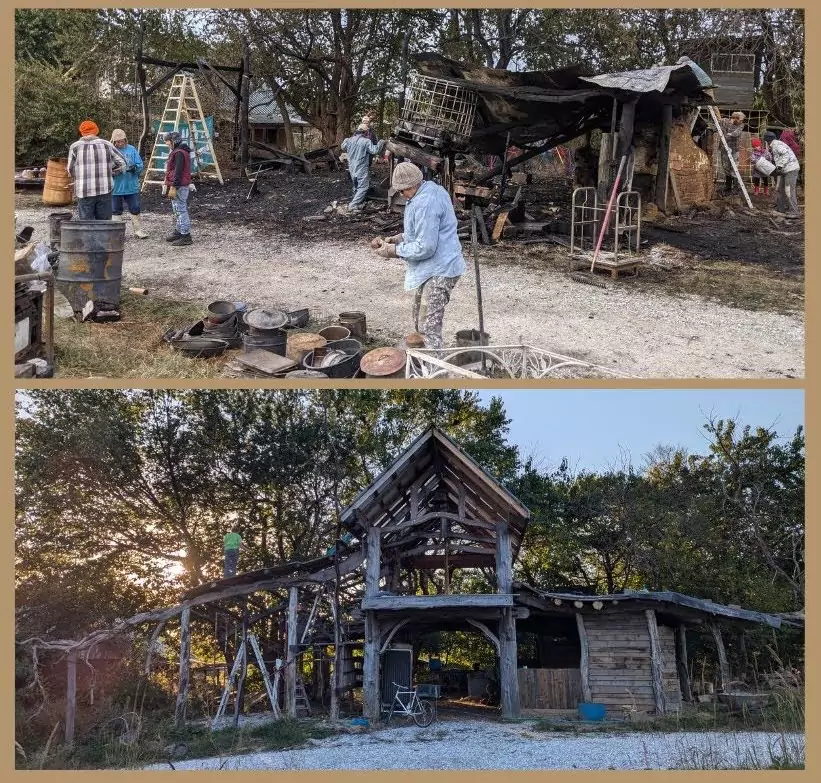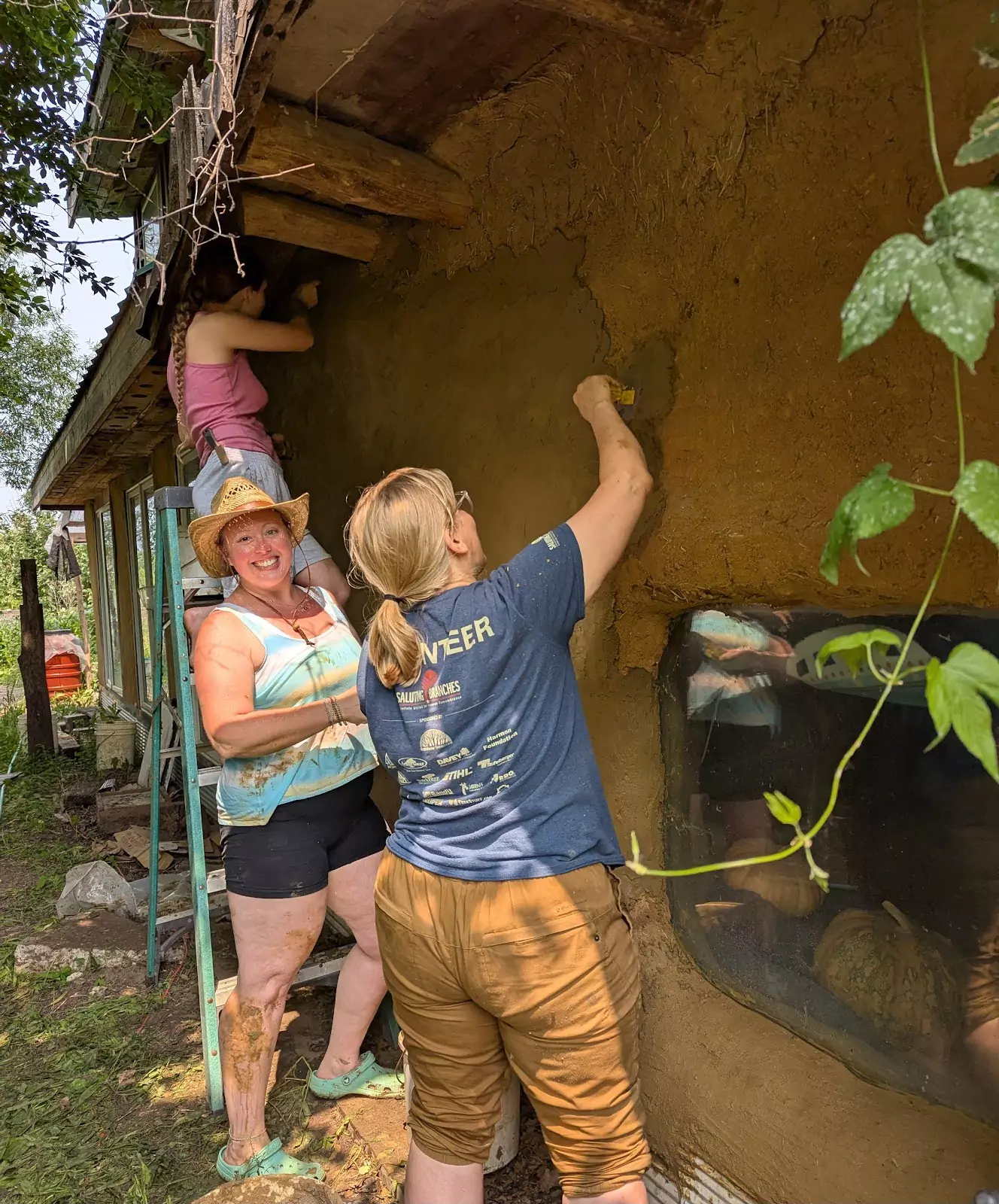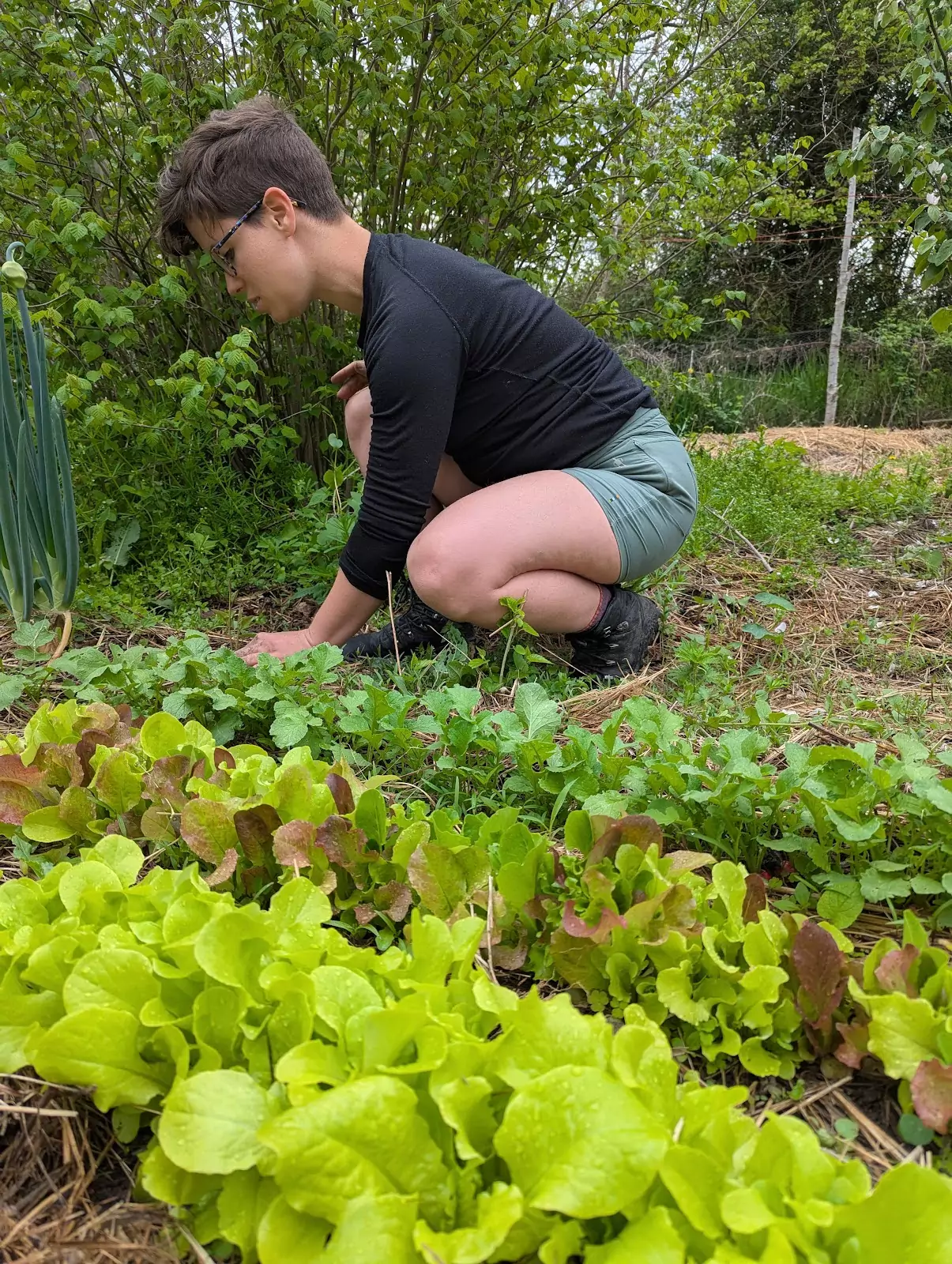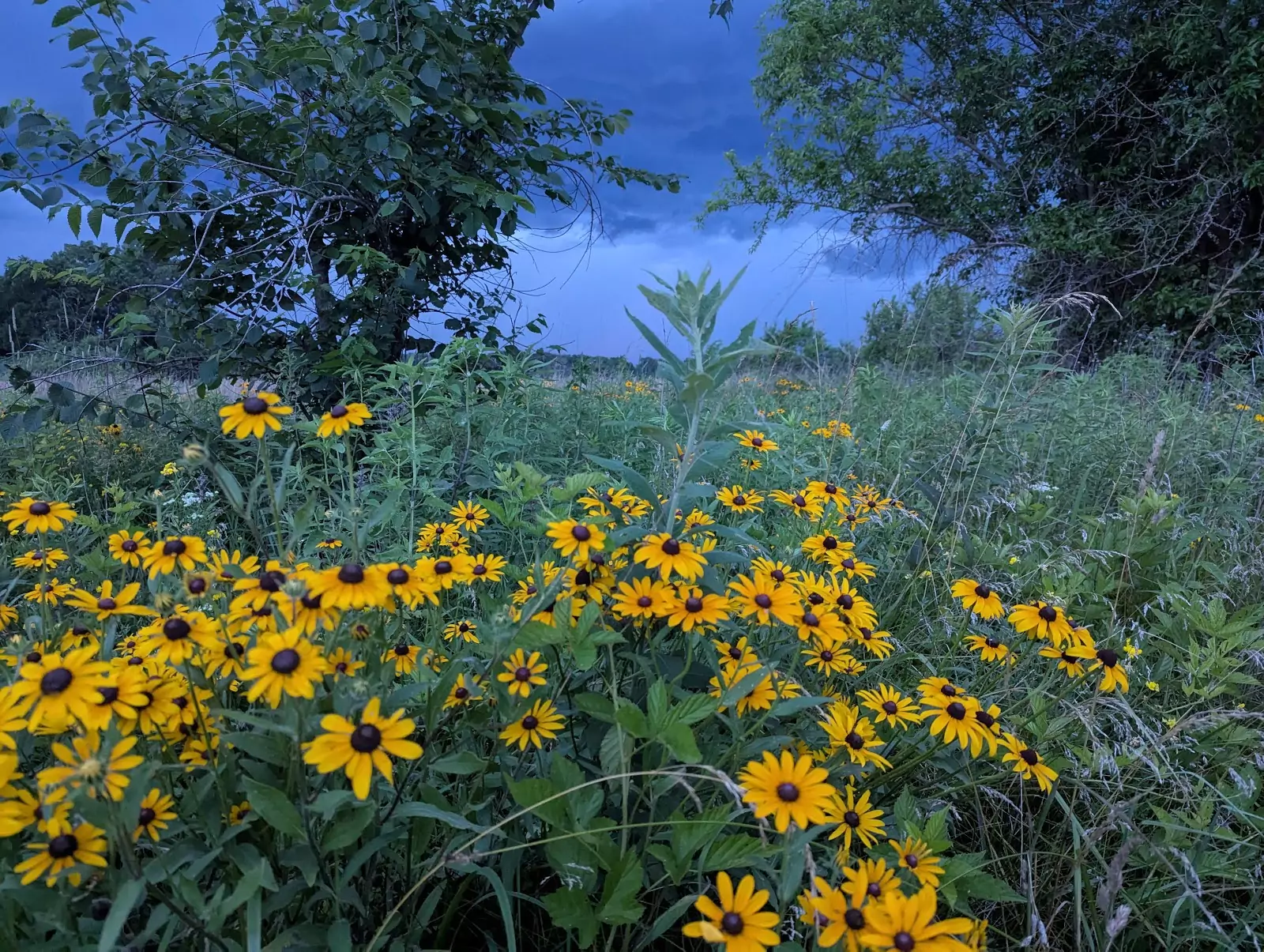Many days I feel helpless in the face of the wounds of the world, so much bigger than myself, so much deeper in time, so much broader than the horizons of my small life. It seems we are surrounded by things falling apart, some going out with spectacular bangs, others slowly eroding away. However, after spending a weekend at a gathering of the Decolonial Repair Network I’ve also been reflecting on the themes of rebuilding, regeneration, and healing from destruction. Emeshe here, writing to you with some thoughts on collaborative repair.
I still remember the despair I felt as the wreckage of Critter Kitchen spread out before me on a frosty morning in November of 2021. The eclectic building had burned down in the night, utterly and completely, taking with it years worth of mismatched plates, festive hand-me-down ties, clay knick knacks the kids had made, a jury-rigged DC speaker system, the couch beloved to jumping toddlers, napping wexers, and, admittedly, flies. All that remained were the twisted cages of water tanks, some sagging roof metal, and the swirling, sculpted face of our homemade cob oven. Say what you like about cob as a building material, it sure as heck is fireproof. I felt a familiar twinge from my childhood in the Colorado Rockies where omnipresent forest fires emblazoned into me these lessons–nothing is permanent, much of what seems eternal is ephemeral, and destruction is as much a part of life as creation.

And yet, three years later, our collective is still here and rebuilding: cleaning duck poop off our newly oiled earthen floor, debating the merits of various solar power systems, squabbling over the heights of our various counter tops. We as a collective have survived, and why? I truly believe it’s because of community. No one of us could have rebuilt the kitchen alone; even our collective of seven to ten people could not have done it without the extended community of Dancing Rabbit, Red Earth Farms, and countless folks who are a part of our extended network. To me, the lesson is simple but clear: we need each other to survive destruction.

Yet, it seems that many of us have forgotten how to work together. In a culture that promotes rugged individualism and romanticizes the self-made man, it is so easy to forget that “self-made” is an oxymoron. We all come from somewhere, and we all depend on the people around us. Why have the calls to go it alone, to be independent, to put one’s self first been so seductive? I cannot say.

But what I can say is that the examples of regeneration I do see are given birth in places where folks have moved beyond disconnection and started working together. In the village, I see it not only in Critter Kitchen but also in the Osage Community Garden, a space that was so large, so overgrown, and so overrun with ticks that I baulked at the idea of rehabbing it into a generative organic garden. Yet, with countless hours of blood (primarily sucked out by ticks), sweat, and occasional tears from villagers and volunteers, the space has been transformed. I see it in the prairies which bloom with wildflowers–a stunning collaboration between humans, fungi, pollinators, and fire. I see the collective regeneration of culture when we sing together, or dance, or share food. In these moments I feel connected, and I see a small footpath towards healing that which has been broken.


Emeshe Amade is a lover of small things–particularly insects and short songs that stay with you for life. She is fascinated by the way little moments, interactions, and connections can ripple out to create a larger reality.
